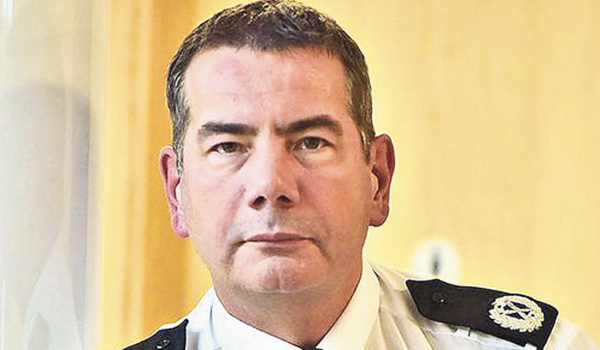Disclosure failings are ‘symptomatic of a system under immense strain’
The committee called for a shift in culture towards viewing disclosure as a core justice duty and not just an “administrative add-on”.
It also said that the Government must consider whether funding across the system is sufficient, noting that delayed and collapsed trials put further strain on already tight resources.
The inquiry into disclosure was launched following reports of high-profile cases collapsing, including the acquittal of Liam Allan in December last year, in which evidence held by the Metropolitan Police Service was not disclosed to prosecutors until the day of the trial.
This evidence undermined the prosecution case to such an extent that once it was disclosed, the Crown Prosecution Service (CPS) decided there was “no longer a realistic prospect of conviction”.
Disclosing unused material very late in the day has significant cost implications for the criminal justice system, as large expenditure is often used on investigation, case preparation and court time, which is wasted if the case is thrown out.
While receiving evidence, the most prevalent theme the committee noticed was that problems with disclosure are mainly driven by a reduction in resources available in the criminal justice system and the police service, as Angela Rafferty, chair of the Criminal Bar Association, stated that “the effects of those cuts are coming home to roost”.
CPS net expenditure fell by 27 per cent from £672 million to £491 million between 2009 and 2017, and the number of full time staff fell from around 6,200 to 5,500 between January 2014 and December 2017.
And the Association of Police and Crime Commissioners stated in its evidence that “current funding arrangements no longer ensure the resilience of police forces to respond to further increases in demand”.
However, national criminal justice lead Chief Constable Nick Ephgrave stressed to the committee that “the answer is not just more resources”.
“I think we need to fix the mindset issue, try to harness technology to solve some of the issues that technology is presenting, and once we have done those things, maybe put our minds to resourcing”, he added.
The committee said it has been widely acknowledged for some time that there are “persistent problems” with the practice of disclosure, and six reports in as many years have highlighted a series of issues.
In 2015, Lord Justice Leveson’s review of efficiency in the criminal justice system revealed that “one of the major issues was the present failure of the police and the CPS to meet deadlines for disclosure”.
And in July 2017, a report by Her Majesty’s Inspectorate of Constabulary and Fire and Rescue Services (HMICFRS) highlighted “extensive issues” with police and CPS handling of disclosure.
However, this has been an issue for longer than six years, with former Attorney General Jeremy Wright telling the committee that disclosure failure was a “serious problem” as far back as 1996.
The CPS is superintended by the Attorney General, who owns the guidelines on disclosure, but the last iteration of these were signed in 2013 by Dominic Grieve.
The committee recommended that current Attorney General Geoffrey Cox – appointed on July 9 this year – should take his new role as an opportunity to sign off on his guidelines at regular defined intervals, either stating that they remain sufficient or noting amendments.
Justice Committee chair Bob Neill said: “Correct disclosure of evidence by the police and CPS to the defence is fundamental to ensuring a fair trial – but is too often regarded as just an administrative headache. This is not acceptable. As we’ve seen in high profile cases since last year – disclosure failings are extremely damaging for those concerned and can have a permanent life-long impact. These failings have caused miscarriages of justice and – as the Director of Public Prosecutions even admitted to us – some people have gone to prison as a result.
“The proliferation of electronic evidence makes disclosure ever more challenging, and we need the right skills, technology, resources and guidelines, to resolve this once and for all. The failings are symptomatic of a system under immense strain: without change, we cannot expect the public to have confidence in the criminal justice system.
“We welcome the National Disclosure Improvement Plan, and particularly the commitment of senior police officers we spoke to, and we look forward to reading the Attorney General’s review, but these must deliver much needed improvement. There have been too many reviews of disclosure that have not resulted in real change.”







